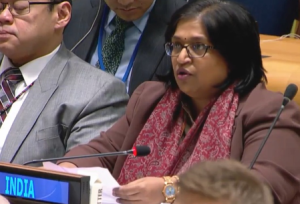A federal judge has permitted Iowa to continue contesting voter lists, even though the efforts may impact naturalized citizens.
Court decision on Sunday was a loss for opponents who argued it jeopardized the voting rights of new American citizens.

Three reporters from the Associated Press, John Hanna, Scott McFetridge, and Michael Goldberg, wrote an article about a ruling made by U.S. District Judge Stephen Locher in Iowa on Sunday. The ruling stated that Iowa could continue to question the validity of hundreds of ballots from potential noncitizens, despite criticism that this could threaten the voting rights of those who have recently become U.S. citizens.
The lawsuit was filed by the American Civil Liberties Union (ACLU) on behalf of the League of Latin American Citizens of Iowa and four recently naturalized citizens. These four individuals were on the state's list of questionable registrations, which local election officials planned to challenge.
The state's Republican attorney general and secretary of state argued that investigating and potentially removing these names would prevent illegal voting by noncitizen immigrants. This is a topic that has been heavily discussed by GOP officials leading up to the election, with former President Donald Trump falsely claiming that his opponents were committing fraud to prevent his return to the White House.
In his ruling, Locher cited a recent U.S. Supreme Court decision that allowed Virginia to resume a similar purge of its voter registration rolls, even though it was affecting some U.S. citizens. He also mentioned the Supreme Court's decision to not review a Pennsylvania Supreme Court ruling on state electoral laws surrounding provisional ballots, which advises lower courts to be cautious before granting last-minute injunctive relief.
Furthermore, Locher clarified that the state's efforts did not involve removing anyone from the voter rolls, but rather requiring some voters to use provisional ballots. Iowa Governor Kim Reynolds, a Republican, celebrated the ruling, stating that it was a victory for election integrity. The ACLU did not immediately comment on the ruling.
After a hearing on Friday, Secretary of State Paul Pate and state Attorney General Brenna Bird stated that Iowa had approximately 250 noncitizens registered to vote, but the Biden administration did not provide data about them. Pate explained that his office had to rely on a list from the Iowa Department of Transportation, which included individuals who had previously identified themselves as noncitizens when obtaining a driver's license but had since become naturalized citizens.
In response to the state's directive, the ACLU argued that federal law prohibits such a move close to Election Day. Rita Bettis Austen, the legal director of the ACLU of Iowa, stated during a Zoom briefing that the secretary of state understands that the list primarily consists of U.S. citizens who have the same right to vote as any other citizen in Iowa.
Locher's ruling also addressed the fact that Pate had backed away from some of his original positions during an earlier court hearing. Pate's attorney clarified that the Secretary of State was no longer trying to force local election officials to challenge every person on the list or require those on the list to vote provisionally, even if they had already proven their citizenship.
It is important to note that federal law and states already make it illegal for noncitizens to vote, and the first question on Iowa's voter registration form asks if the person is a U.S. citizen. The form also requires individuals to sign a statement confirming their citizenship and warning them that lying could result in a felony charge.
This ruling comes after a federal judge halted a similar program in Alabama, which was challenged by civil rights groups and the U.S. Department of Justice. In that case, it was found that over half of the 3,200 voters made inactive were actually legally registered citizens. In Iowa's case, the number of noncitizens registered to vote is only a small fraction of the state's 2.2 million registered voters.
However, Locher stated that it is undisputed that some names on the list are registered voters who are not U.S. citizens. Even if this is a small portion, an injunction would essentially force local election officials to allow ineligible voters to cast their ballots.
The fight over this year's election has been ongoing for months, with both Democrats and Republicans filing lawsuits. Republicans have filed numerous complaints about the election only after votes were tallied, while Democrats have their own team of staffers fighting against these cases.
Lastly, the article explains the process of gaining citizenship through naturalization, which requires establishing residency, demonstrating knowledge of American history and institutions, and taking an oath of allegiance to the United States. John Hanna reported from Topeka, Kansas, and Michael Goldberg from Minneapolis.










